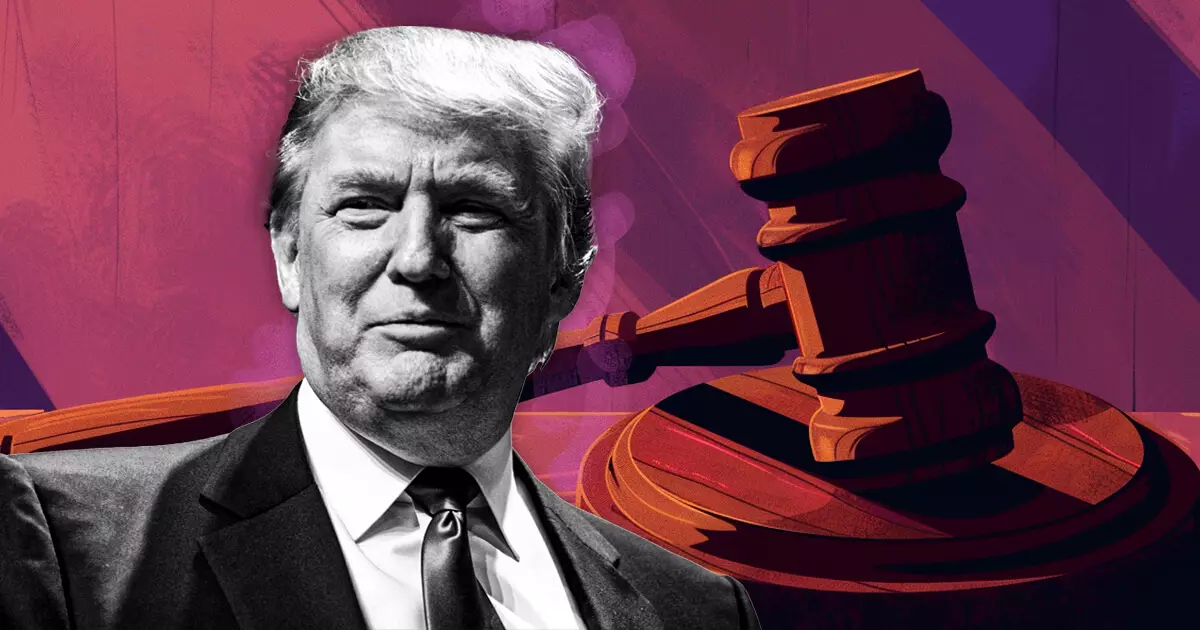The intersection of politics and emerging financial technologies is always a point of contention, and former President Donald Trump’s foray into decentralized finance (DeFi) through his project, World Liberty Financial, serves as a prime example. Amid an elaborate and often perplexing regulatory environment, the project’s viability is under scrutiny, particularly from the U.S. Securities and Exchange Commission (SEC). Recently, SEC Commissioner Mark Uyeda offered insights into the hurdles Trump’s initiative will encounter while navigating these regulatory mazes.
Mark Uyeda’s remarks emphasize a critical aspect of the SEC’s operations: its function as a disclosure regulator rather than a merit regulator. This delineation is significant as it points to the SEC’s commitment to ensuring that all ventures—including World Liberty Financial—meet a baseline of transparency and disclosure without passing judgment on their potential for success or failure. As Uyeda articulated, the SEC does not evaluate the merits or risks associated with individual projects; rather, its concern lies in ensuring that disclosures are comprehensive enough to inform investors adequately.
This stance highlights a fundamental truth about the U.S. regulatory environment for cryptocurrencies. It is fraught with challenges, especially for new entrants attempting to seize market opportunities. Advisory insights suggest that Trump’s legal team will need to be exceptionally adept, capable of steering the project through a complex framework that many other crypto endeavors have struggled with. The urgency for effective legal guidance underscores the stringent requirements that await all cryptocurrency projects in the country.
Speculation regarding political motives complicates the environment further. Given the deep partisan divide in U.S. politics, there are concerns that Democrats may initiate a regulatory crackdown on Trump’s initiative due to its affiliations. It raises questions about whether partisan perspectives can hinder the pursuit of innovation in financial tech sectors. This dynamic introduces an unpredictable element that may discourage investment and innovation within U.S. borders.
Uyeda’s statements regarding the necessity for regulatory compliance echo sentiments expressed by his fellow SEC commissioner, Hester Peirce, who has actively criticized the current regulatory framework. Their combined commentary speaks to a broader apprehension that vague regulatory guidance hinders crypto developers from realizing their full potential. The skepticism surrounding World Liberty Financial reflects this broader unease among investors, who may perceive the project as being vulnerable to shifting political tides.
Facing an intricate network of regulatory expectations, Trump’s venture could ultimately be determined by its ability to align with evolving SEC guidelines. Uyeda’s cautionary words to secure competent legal representation resonate deeply, given the substantial stakes involved. The current legal landscape provides no shortcuts; entrepreneurs need to anticipate and navigate regulatory challenges that have characterized the industry for years.
Investors are also wary of how regulatory scrutiny impacts actual performance. Trump’s assertions that World Liberty Financial can position the U.S. as a leader in global cryptocurrency markets starkly contrast with a foundation built on uncertainty and skepticism. Achieving a robust foothold in the DeFi sector will hinge not just on innovative offerings but significantly on the ability to operate within a regulatory framework that demands transparency while remaining elusive.
The discussion surrounding the oversight of cryptocurrencies has intensified, and many lawmakers are beginning to recognize the necessity for more transparent regulatory structures. Calls for a joint advisory body reflect a growing consensus that a more coherent framework is pivotal for the advancement of cryptocurrency technology in the U.S.
As World Liberty Financial moves forward, Trump’s leadership will be instrumental in determining whether the DeFi project can navigate these turbulent waters. The project’s fate may ultimately rest on external factors—primarily regulatory clarity—or the potential for a political atmosphere that allows for nurturing innovation.
Despite the ambition underlying World Liberty Financial, the obstacles presented by the SEC’s rigor and the uncertain regulatory environment pose considerable challenges that could impede its success. As the DeFi landscape continues to evolve, the dual specters of political partisanship and regulatory expectations will necessitate vigilance and strategic navigation if Trump’s initiative is to thrive.
















Leave a Reply